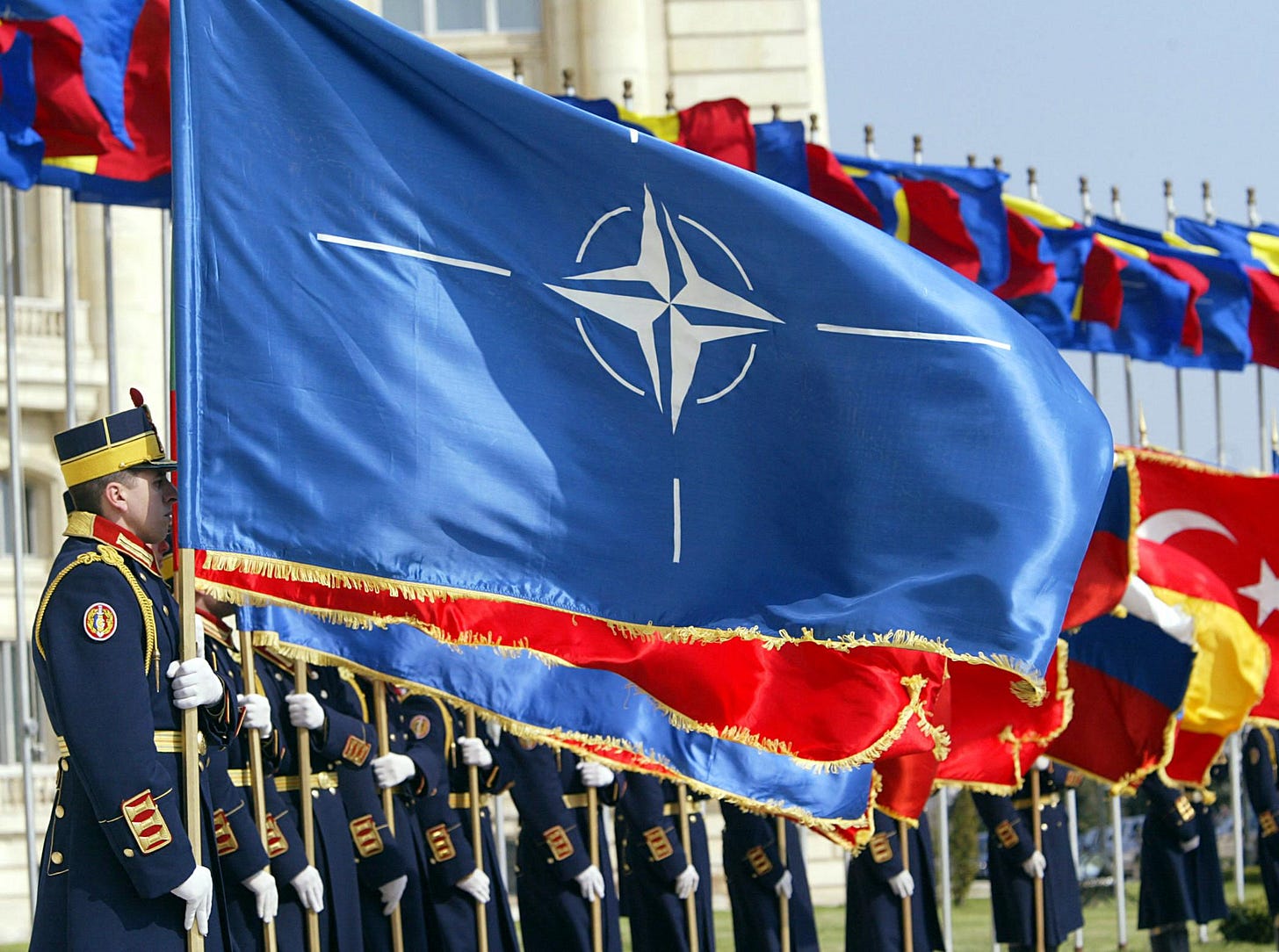Why NATO Is More Than Democracy’s Best Defense
My latest piece in The Journal of Democracy with Robert Person!
In the spirit of NATO celebrating its 75th anniversary, read the latest piece I wrote together with Robert Person for The Journal of Democracy.
NATO celebrates the 75th anniversary of its founding on 4 April 1949. Much of the coverage of this momentous occasion will focus on the strength of NATO’s famous Article 5 guarantee that “an armed attack against one [NATO ally] … shall be considered an attack against them all.” Faith in this bedrock principle of the alliance has been shaken in recent years, not least because of former U.S. president Donald Trump’s well-documented skepticism of NATO and his occasional threats to withdraw the United States, even going so far as to invite Russia in February 2024 to do “whatever the hell they want” to NATO allies who “don’t pay.” But these discussions risk overlooking an important truth that should also be celebrated on this anniversary — the powerful and successful role that NATO has played in defending and advancing democracy in Europe. As an instrument of democracy promotion, NATO has been fantastically successful.
During the Cold War, NATO played an essential role in defending democracy in Western Europe. After World War II ended, uncertainty lingered over the type of governments that would consolidate across the continent. Communist parties in Italy and France threatened to win power through elections and other means. Communist insurgents in Greece triggered a civil war while Soviet meddling in Turkey threatened political stability in the region and beyond. It was the 1948 communist coup in Czechoslovakia that helped to finally convince leaders of the United States, Canada, and Western Europe to create NATO as a defensive alliance against Soviet aggression.
Read the rest here!


